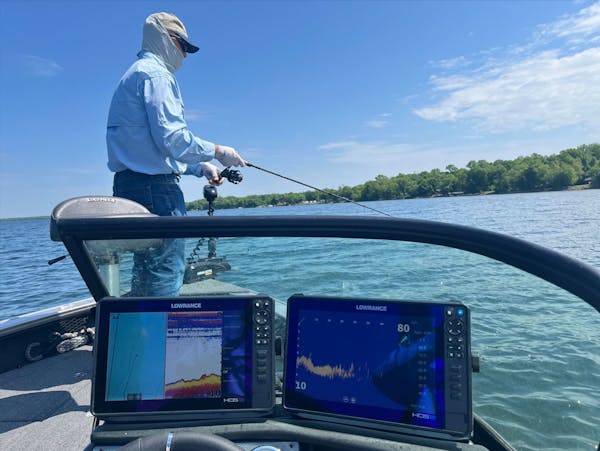A federal judge denied a request Tuesday from an environmental group to immediately halt motorized towboat usage in the Boundary Waters Canoe Area Wilderness (BWCA).
U.S. District Judge Nancy Brasel said in her ruling against Wilderness Watch that an injunction would unnecessarily disrupt canoe trip plans for a number of people who have already reserved entry permits for the 2023 paddling season. The BWCA gets about 150,000 visitors per year.
"Older visitors and visitors with limited mobility use towboats, and an injunction would risk reducing these visitors' opportunities to experience the BWCAW,'' Brasel wrote. "Moreover, a total ban would likely disrupt Forest Service's work of gathering and analyzing data regarding motorboat and towboat usage.''
Motorized towboats have been shuttling groups into canoe country since before Congress passed the BWCA Wilderness Act in 1978. The law allowed for the continued use of the boats on designated routes, but Montana-based Wilderness Watch has alleged that the U.S. Forest Service allowed trips to grow beyond established limits.
Eighteen outfitters are currently authorized to provide the service and the Forest Service wants the lawsuit dismissed as it continues to analyze all use of motors on designated lakes in the BWCA.
In her ruling, the judge said she ordered the environmental group and the Forest Service to negotiate a towboat trip limit while the litigation is pending. But the two sides couldn't find any middle ground and the Forest Service insisted that it was not feasible to place any upper limit on towboat trips at this time, the judge wrote.
"Because the record is completely muddled as to how such a limit should be calculated, the Court declines to pick what would be an arbitrary number,'' the judge wrote. "But a limit may be appropriate upon a further‐developed record.''
Kevin Proescholdt, the Minnesota-based conservation director for Wilderness Watch, said the organization is disappointed in the court's decision not to impose an immediate limit on towboats. "We are confident that we'll prevail as this case proceeds and the judge gets a chance to view the whole record,'' he said.
Assistant U.S. Attorney David Fuller, who is handling the case on behalf of the Forest Service, declined to comment.
Outfitters have decried the Wilderness Watch lawsuit as elitist. They say towboat shuttles that carry groups and their canoes over long distances to and from remote entry points help disperse BWCA visitors across the million-acre landscape of lakes, woods and rivers. Without towboats, fewer people will visit the BWCA and congestion will worsen on routes and campsites on the perimeter, they say.
